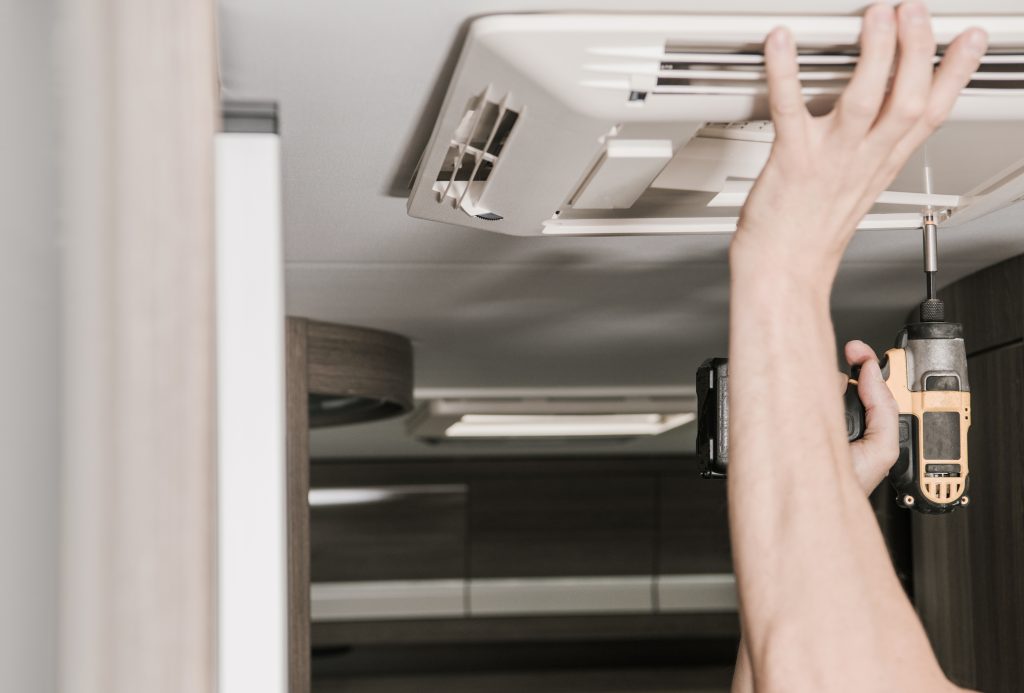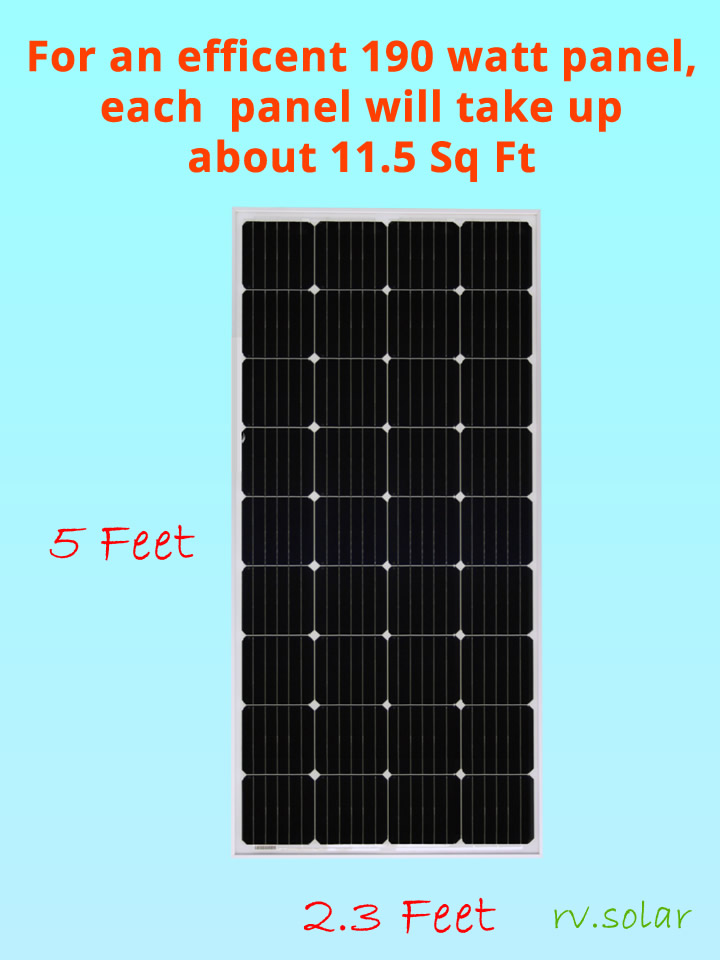Everyone wants to run their AC (Air Conditioner) off-grid on RV solar. Let me start by saying that I believe anything can be done. The variables in this equation for providing off-grid power are important. Let us look at a couple of factors that determine run time, cost, satisfaction, and feasibility.
Air Conditioners designed for RV use
When looking at air conditioning in an RV it is important to first determine what type of RV you have. Air conditioners in RVs can range from 5000 BTU window units to 3 or 4 15000 BTU roof-mounted units.
Learn more about RV types here:

For a basic example, let us assume you only have one 13,500 BTU roof-mounted AC that you want to run using solar power, batteries, and an inverter. The blog article https://www.fateunbound.com/solar-rv-air-conditioning/ lists a 13,500 BTU roof air at a 79 amp load. I do think this load can vary a bit depending on the manufacturer. That is a good real-world number to work with. He also lists that he has installed a soft start on the air conditioner to reduce startup draw.
We too will also make the assumption that you have a soft start installed on your air conditioner and that your installed power inverter will handle the load.
We will mainly discuss the power from required from your batteries and solar charging from your rv panels.
Discussion of our rv solar powered air conditioner
When RVers are considering using their air conditioners on an RV it is often because it is in a hot and humid environment. So it is important to consider that factor when trying to determine all the requirements to run the air conditioner on and off-grid RV solar system. I’ve seen a lot of videos on the internet and also blog articles that discuss running the air conditioner when the ambient temperature is 70 degrees and the humidity is below 40%. This would often require very short run times and in my opinion, might not even qualify for needing to run the air conditioner. My discussion will be more in line with questions I received from customers who are trying to go camping in the South or at least in warmer environments and are wanting to boondock while running the air conditioner at a 90-degree ambient temperature and a 90% humidity. Although there are other considerations and weather factors to look at this will be the worst-case scenario for running an air conditioner on your solar system. the reason being is that the cycle time on the AC will be near 100% in my example and in better weather environments the cycle time can be significantly reduced thus reducing the amount of overall power required. There is also the ability to manually cycle the air conditioner to lower the temperature and humidity in your RV for shorter periods of time. I have found while it does improve the situation while the air is running it quickly deteriorates once the air stops. I have found that actually just running fans on these days in your RV is more beneficial than running a partially operating air conditioner. in my opinion, keeping the air moving I think is key, but you have to make up your own mind based on what the factors below mean to your equation. Leave any comments about what you been able to do when running an air conditioner on your solar system in your RV would love to learn more.

RV roof space requirements
An RV roof is almost never an uninterrupted space. There are always AC shrouds, vent pipes, TV antennas, fan shrouds, Radio Antennas, WIFI antennas and range extenders to consider. The total self-contained roof solar must be less than or equal to the total available square footage of your RV roof. It is not ideal to cover most of these items with panels.
Each solar panel will take up certain square footage based on the amount of power they produce and the panel’s efficiency.

